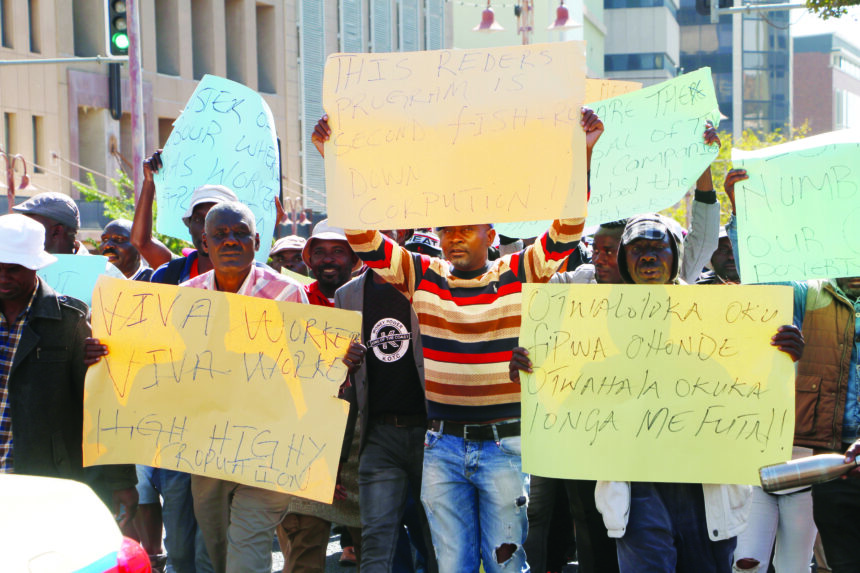WALVIS BAY – The Okapale fishermen – employed under the Government Redress Programme by Iyaloo Women Group Investment – are struggling to make ends meet as the company allegedly failed to pay their full salaries.
The government allocated fishing quotas to various fishing companies in exchange for employment for fishermen previously employed by Namsov and those who lost their jobs during an illegal strike in 2015.
However, during a press conference on Friday, the group employed by Iyaloo revealed that they have yet to receive their full wages.
The group’s chairperson, Godfried Kuhanga, stated that the fishermen were informed by the company’s management on 21 August that their salaries would be delayed due to a lack of funds. After several meetings, the workers reluctantly accepted a partial payment of N$2 000, with the promise that the outstanding amount would be paid once additional fishing quotas were secured.
“This situation is unacceptable. Our livelihoods depend on our salaries, like all working-class in Namibia. The delay has left many of the fishermen in dire straits. Our rents are overdue, our children are going to school hungry, and we are emotionally, physically, and financially strained,” Kuhanga said.
They are supposed to receive a monthly stipend of N$4 000.
The fishermen insist that they are entitled to proper employment at sea, as there are companies willing to offer permanent positions. However, they claim the fisheries minister is preventing them from accepting these opportunities. “We want this issue resolved before the end of the fishing season so we can have peace of mind by November 2024, when the new hake fishing season begins,” said
Kuhanga.
Fisheries minister Derek Klazen confirmed over the weekend that the company was awarded additional quotas last week.
He stressed that the attorney general is working with the ministry as negotiations with fishing companies continue.
He urged companies interested in providing active jobs at sea to the fishermen to approach the ministry for consideration.
Earlier this year, both Klazen and labour minister Utoni Nujoma indicated that the Government Redress Programme is facing challenges, and agreed to return to the drawing board.
“We need to sit down and see how we can improve the current situation. This is the first time we are undertaking such an exercise, and it has come with trials and challenges. The Swapo government is a caring government and wanted to assist the fishermen,” he noted at the time.
The ministers also agreed that more quotas cannot be granted, as the total allowable catch is simply not enough.
-edeklerk@nepc.com.na



